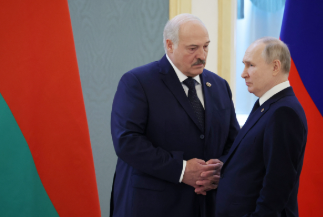Efforts to Create Division in Global Alliances
Recent geopolitical developments have raised concerns about increasing tensions among major world powers. Observers have noted efforts to create divisions between two key allies, which could significantly impact international relations. The stability of global alliances plays a crucial role in shaping economic policies, military strategies, and diplomatic engagements. If attempts are made to weaken these partnerships, it could lead to unexpected shifts in regional and global interactions.
Strong international alliances are often built on mutual interests, shared economic goals, and strategic cooperation. When external influences try to disrupt these relationships, the consequences can be far-reaching. For nations involved in ongoing conflicts, maintaining strong diplomatic ties is crucial to ensuring security, economic stability, and political influence. Any rift between allied countries could change how they approach military and trade agreements, affecting both regional and global economies.
Tensions between world powers have historically led to shifts in diplomatic strategies, economic sanctions, and changes in military alignments. The ability to resist external pressures is crucial for maintaining stability in international relations. Some nations believe that remaining united in the face of such pressures is the only way to prevent larger disruptions. The message from political leaders has been clear: unity is essential, and external interference should not be allowed to dictate the course of global diplomacy.
Impact of Conflicts and Economic Challenges
The ongoing conflict in Eastern Europe has had wide-reaching consequences, affecting both military strategies and economic stability. Certain territories have played a critical role in the conflict, providing strategic access for military operations. This has drawn international attention and led to economic restrictions imposed by global powers. Sanctions have targeted industries, financial institutions, and trade agreements, creating economic hardships for those affected.
Despite these restrictions, economies continue to function, though with challenges. Many industries have been forced to adapt, seeking alternative trade partners and adjusting their production models. Agriculture, manufacturing, and other key sectors have experienced significant disruptions, but efforts are being made to keep essential operations running. The ability to navigate these difficulties largely depends on diplomatic relations with other nations willing to maintain trade partnerships.
Trade restrictions have particularly impacted industries that rely on international exports. For example, agricultural products and fertilizers, which were once major exports to global markets, now face obstacles due to sanctions and limited access to key trade routes. However, industries have not come to a complete halt. Instead, new trade relationships are being explored, and alternative markets are being considered to mitigate economic losses.
The economic strain caused by the conflict has also affected currency values, inflation rates, and overall market stability. The uncertainty surrounding the future of trade agreements has made financial planning more difficult. Businesses and consumers alike are feeling the effects, with price fluctuations and supply chain disruptions becoming more common. Maintaining economic resilience in such a challenging environment requires strategic planning and adaptability.
Trade Concerns and Market Competition
One of the most pressing concerns for industries is the impact of foreign competition if economic restrictions are lifted in the future. Many businesses that were once dominant in their markets now face the possibility of competing with international companies that have access to greater financial and technological resources. While increased competition can bring innovation and better products to consumers, it also poses challenges for local industries trying to regain stability.
The fertilizer industry, for instance, was once a key supplier to global markets. However, restrictions on exports have changed trade dynamics, leading to supply chain disruptions. If sanctions are removed or eased, foreign companies could re-enter the market, making it difficult for domestic producers to regain their previous standing. This concern extends to other industries as well, where market competition could become a significant challenge.
Another factor influencing trade concerns is the ability of domestic industries to meet demand despite restrictions. While international sanctions have impacted trade, the demand for essential goods, such as food and fertilizers, remains high. Countries that rely on these products must find alternative sources or work within existing trade agreements to ensure supply. This has led to shifts in global trade patterns, with new partnerships emerging as a result of changing market conditions.
In this uncertain economic environment, adaptation remains a key focus. Businesses and industries must adjust to evolving market conditions, finding innovative ways to sustain operations despite economic pressures. The ability to navigate these challenges will determine how industries and economies recover from the effects of ongoing geopolitical tensions. For now, stability remains the primary concern, as nations continue to manage the complex relationship between economic survival and international diplomacy.


